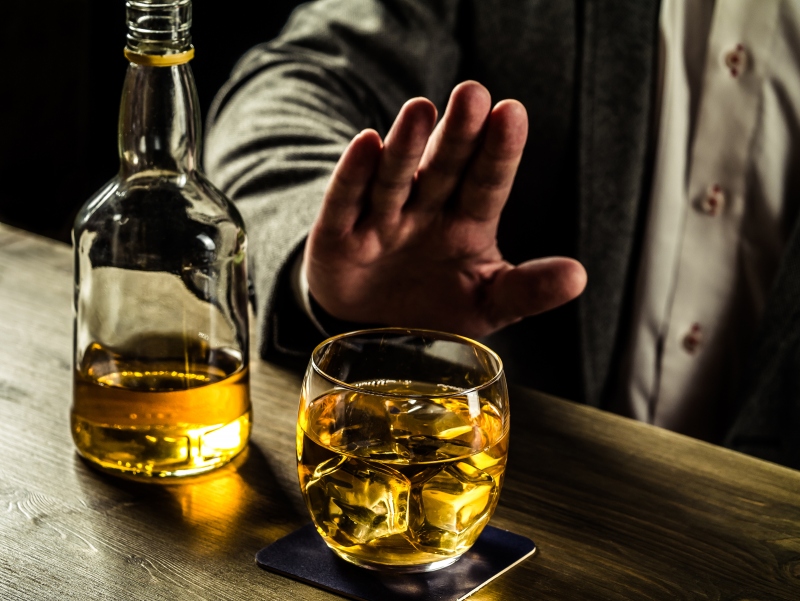There is no doubt that you will undergo some level of withdrawal when there is a physical dependency on alcohol and you enter a California detox for treatment. The severity of withdrawal depends on many factors, but mostly the amount used over time. Below are a few of the more common side effects to expect and an approximation as to when they start.
What is a physical dependency?
The physical dependency experienced by people towards addictive substances occurs when they are used over a long period of time in increasing amounts. As the body gets used to or builds a tolerance for substances, it is required to take heavier amounts to get a similar feeling as before. The higher the tolerance level is, the deeper the addiction. It will be somewhat indicative of the withdrawal struggles you may go through.
When to Expect Withdrawal Symptoms
Alcohol withdrawal symptoms can begin as quickly as 6 to 8 hours after the last drink. It varies by individual, but initial symptoms rarely strike more than 12 hours later. Onset can be somewhat muted if you are sleeping at the time. You need to make some quick decisions if this will be happening in the next few hours. Although the first symptoms are somewhat tolerable, they can become increasingly more difficult and unbearable. They can eventually become life-threatening.
What is the first stage of alcohol withdrawal like?
One of the more common descriptive words used by those undergoing the first stages of alcohol withdrawal is uncomfortable. You will tend to become jumpy, easily agitated, tremble, get confused, sweat profusely and have clammy, cool skin. These symptoms may or may not be accompanied by nausea and vomiting. A generalized depression sinks in, but it may be hard to sleep. The severity of the discomfort will depend on the extent of the alcohol addiction. This is the best time to seek treatment programs that can help.
What are the symptoms of the second stage in alcohol withdrawal?
The second round of symptoms of alcohol withdrawal may not be all that noticeable if it is your first time in seeking the cessation of alcohol use. The symptoms from the first stage will be present but can turn more severe. These can also be coupled with visual and auditory hallucination from 12 to 24 hours after you take the last drink. The severity will depend greatly on how much alcohol has been consumed and for how long. Gran mal seizures can start, which make the muscles go rigid, teeth and jaws clamp shut, and breathing problems can develop. This has to be monitored closely.
What are stage three alcohol withdrawal symptoms?
Stage three of alcohol withdrawal can be deadly if not treated by professionals. This is not normally a problem unless the alcohol use has been extreme and long-term. A condition called delirium tremens or DTs can start. This can involve serious seizures, hallucinations, breathing problems, and fatal heart rhythm problems. There are marked mood swings, long periods of deep sleep, and the all-encompassing tremors.
Why Safe Detox Is Needed
There is no way to predict how your body will react to the lack of alcohol when you have developed a physical dependency. Every person is different and each situation can vary. If you have undergone treatment before and suffered serious withdrawal symptoms, there is a greater likelihood that you will again. Monitored withdrawal is the best and safest route to go.
Medically Supervised Alcohol Treatment Programs
Having a treatment team that monitors your health as you safely withdrawal is the only way to guarantee someone will be there if an emergency situation arises. They can also offer some relief from withdrawal symptoms with the aid of benzodiazepine medications. The knowledge that you have medical experts helping is enough to help break through a lot of the anxiety and stress you might feel about the unexpected.
Replenishing Nutrients and Gaining Sobriety
Your body gets drained of vital nutrients and vitamins during bouts of active alcoholism. This lack of nutrients often makes the withdrawal symptoms worse. It is critical to begin working at regaining the full health and vibrancy your body needs to stay sober. Maintaining a good diet and healthy blood sugar level will do much to repair damage to the body.
Call on alcohol detox experts like Restore Detox Centers and find out more about a safe, effective alcohol treatment program today!
